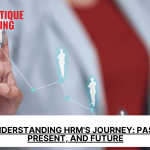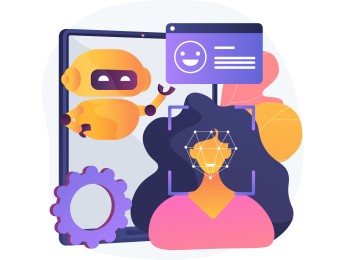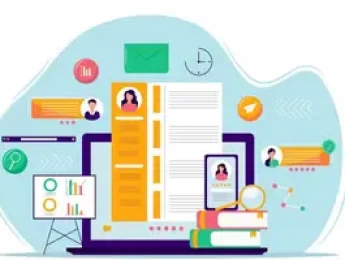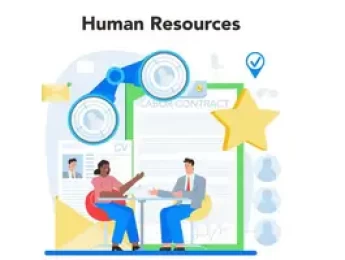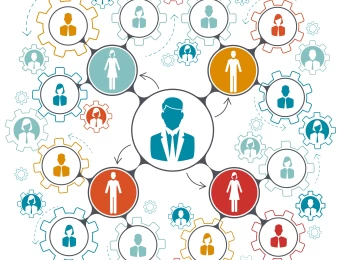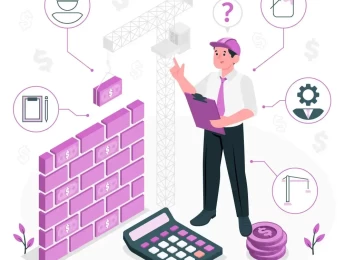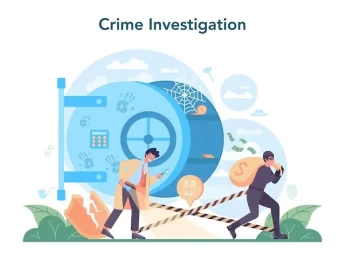Everything changes, and nothing stays the same. That has always been true, but since the global pandemic and the introduction of artificial intelligence, things have begun to change significantly and will never go back to the way they were. Human Resources will be impacted and see a massive change in organisational structure and practices.
Automation scares many people as they fear it will lead to robots replacing people in the workplace, but it is essential that we realise this is not the case, and these are tools that we can embrace to create a better environment. In this course, we will look at the findings of many major universities such as Oxford, Stanford and Harvard and how they see the future of human resources in a world that is harnessing and embracing AI.
Delegates will also look at how the world of work was changed forever with the need to survive during the unprecedented global lockdowns and why some of these changes have become the new normal with no way back to how things were before. We also look at Generation Z - also known as iGEN, as in 2020, they made up a quarter of the working adult population, and this figure is set to rise. They are known to be challenging and have clear expectations and values that need to be met in order for organisations to harness their talent.
Upon completion of this course, participants will be able to:
- Successfully research to gain valuable information
- Use organisation design and change needs to create a strategic framework
- Demonstrate the ability to maximise automation and improvement in the process of recruitment and selection
- Confidently explain how this has value to everyone in the company
- Explain, test, examine and master the system of seamless bonus and reward
- Harness the value of GenZ/iGen and maximise this in strategies and existing HR practices
- Introduce a process of training needs and evaluation analysis using automation
- Make a case for revamping processes in the company
- Explain the thought process and how it adds value
- Be confident with succession planning
This course is for:
- Senior HR Staff
- Senior Training Managers
- Recruiters and Staff Developers
- Workforce Planning Managers
- Board Directors
- Organisational Design Managers
- Anyone interested in the future for organisations with the impact of Artificial Intelligence
Teaching takes place in a variety of settings, including face-to-face classroom teaching. It will ensure that participants can expand their knowledge of the subject and increase their skills. The course is delivered via various methods by a specialist tutor. This will include PowerPoint presentations, reviewing articles and other relevant materials, group or individual exercises and discussions. There may be some independent work set, and the course will require submitting articles to demonstrate understanding and an end-of-course test. Note-taking is encouraged, and you are welcome to use electronic devices to do this.
The course manual will form part of the learning but give you references for the future. You are encouraged to ask questions and, if needed, spend time one to one with your tutor to review any issues. You will network with peers in similar roles during your time in the classroom.
Day 5 of each course is reserved for a Q&A session, which may occur off-site. For 10-day courses, this also applies to day 10
Section 1: How Strategic Planning Has Advanced
- Artificial Intelligence strategic modelling
- Redesigning processes using strategic modelling
- How to use a strategic model in HR
- Examine what needs to change in the next two years
- How to create a business case for the changes needed
- Converting your strategic modelling into an action plan
Section 2: How Employment has Changed Forever: Artificial Intelligence and COVID-19
- Artificial Intelligence: The before and after of our systems
- Pre-AI: Why establishing the right size for a company was paramount
- Rightsizing - a guide to the process
- Organisation Design is impacted by change needs
- Process design: Understanding and mastering
- Universal basic income - what it is and why it must be addressed
- Digital footprints - use and best practice
Section 3: Existing HR Key Functions Need Significant Changes
- Recruitment and Selection: how to make significant improvements
- Digital footprints and the use of psycho-graphics
- Measuring intelligence - new tools and the end for testing
- Personality profiling - a look at the significant advances
- How to use automation for background profiling
Section 4: Transparent Pay & Rewards: Re-engineered Appraisal Process
- Performance Management: the need for understanding
- Performance data: gathering with technology
- Performance appraisal has a new role
- The reward process can be automated
- Pay for action, not knowledge - a paradigm shift
- Allocating bonuses using automation
Section 5: Traditional HR Processes Need Automation
- Training Needs Analysis: creating full automation.
- Bringing automation into training evaluation
- Understanding and creating support services value centres
- A new way of approaching succession planning
- Significant business contributors - why this is the future for HR
- What skills will be needed
- How HR was impacted by COVID-19
Upon successful completion of this training course, delegates will be awarded a Holistique Training Certificate of Completion. For those who attend and complete the online training course, a Holistique Training e-Certificate will be provided.
Holistique Training Certificates are accredited by the British Assessment Council (BAC) and The CPD Certification Service (CPD), and are certified under ISO 9001, ISO 21001, and ISO 29993 standards.
CPD credits for this course are granted by our Certificates and will be reflected on the Holistique Training Certificate of Completion. In accordance with the standards of The CPD Certification Service, one CPD credit is awarded per hour of course attendance. A maximum of 50 CPD credits can be claimed for any single course we currently offer.
- Course Code PH1-104
- Course Format Classroom, Online,
- Duration 5 days


